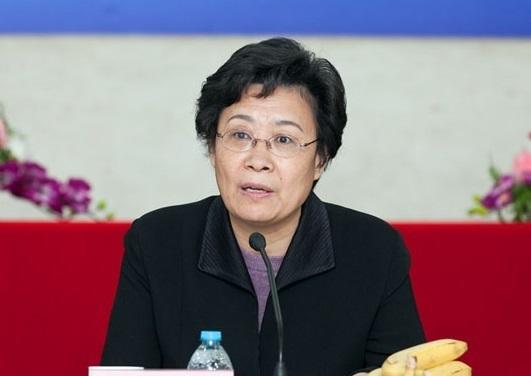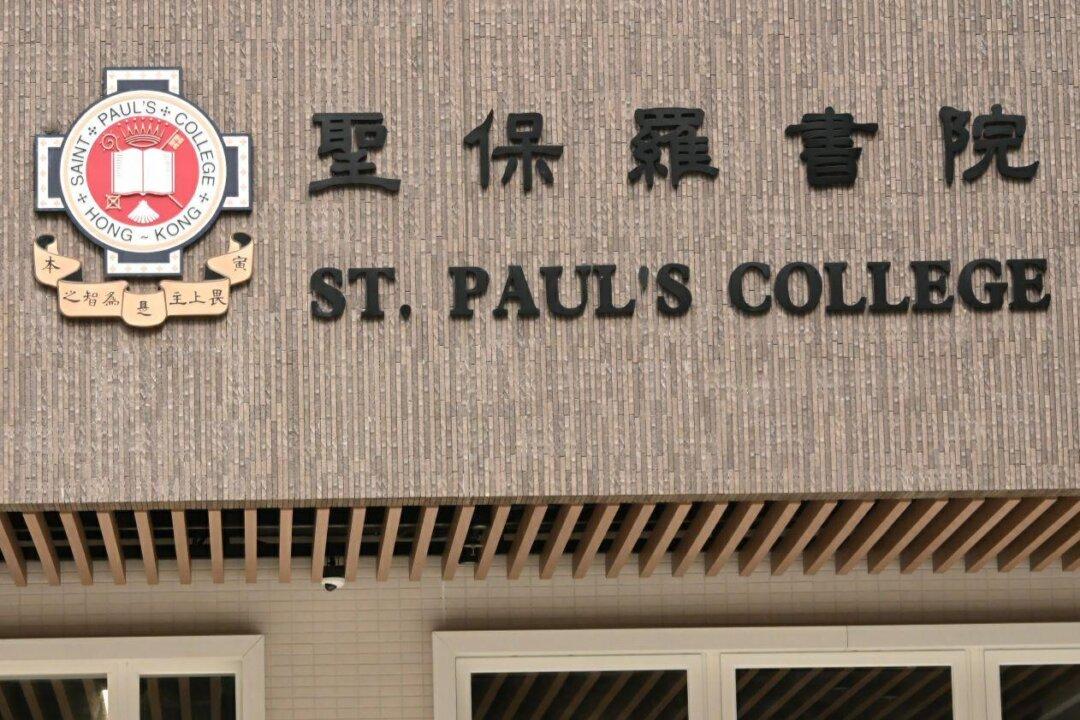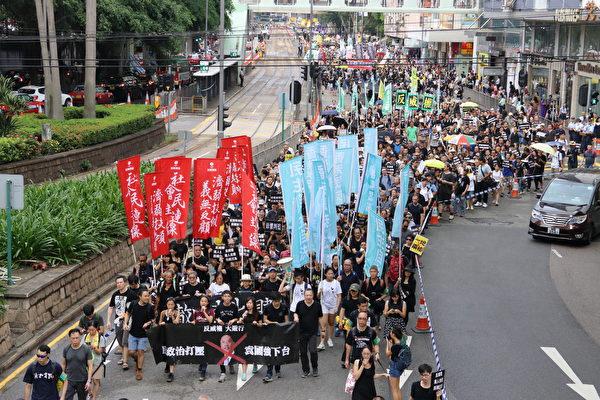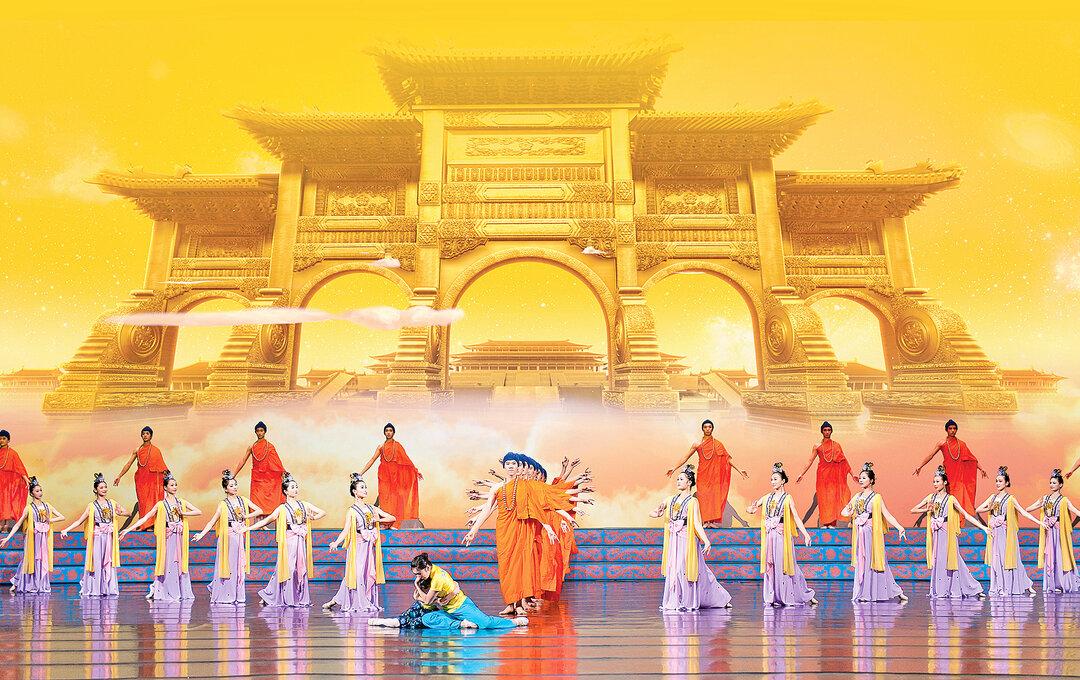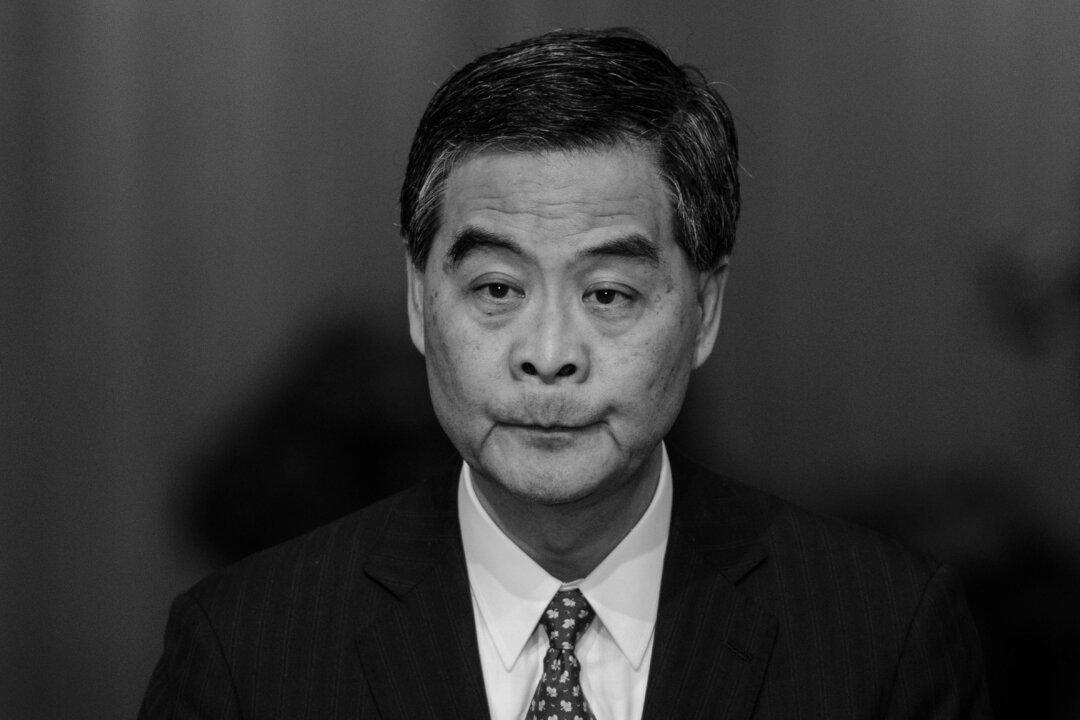HONG KONG—The anti-corruption campaign of the Chinese Communist Party (CCP) leadership has officially entered Hong Kong. For the first time, China’s anti-corruption watchdog has assigned an official to be stationed at the Hong Kong and Macau Affairs Office (HKMAO) of the State Council, as well as oversee discipline inspection work in the Hong Kong and Macau Liaison Office.
Hong Kong has long been under the control of the faction headed by former CCP leader Jiang Zemin, and it is also a financial paradise for CCP princelings. Since last year, the anti-corruption action led by Jiang’s rival, current CCP leader Xi Jinping, has accelerated.
The majority of the senior officials who have been sacked in the campaign are members of the Jiang faction.
Now the anti-corruption agency, the Central Commission for Discipline Inspection (CCDI), is also focusing on Hong Kong and Macau, which means that instant sacking of Hong Kong’s high-ranking officials could happen any time. Public attention is now on who will be the first “tiger,” or high-ranking official, to be disciplined in Hong Kong and Macau.
The CCDI is the highest internal-control institution of the CCP, and it is tasked with enforcing internal rules and regulations and combating corruption and malfeasance in the CCP. The Secretary of the CCDI is its leader.
In the past, the discipline inspection work of the HKMAO and the Hong Kong and Macau Liaison Office was the responsibility of the internal department in the HKMAO. This is the first time the CCDI has taken over the task.
Li Qiufang, the new discipline inspection team leader, has the title of “CCDI team leader and committee member stationed at Hong Kong and Macau Affairs Office of the State Council,” ranked after HKMAO deputy directors Wang Zhimin and Zhou Bo, but ahead of deputy director Feng Wei.
As a member of the CCDI committee, Li will also oversee the work of discipline inspection in the Hong Kong and Macau Liaison Office.
Previously, the CCDI did not have officials stationed at the Central Propaganda Department or other CCP central departments, including the HKMAO, the Taiwan Affairs Office, the Hong Kong and Macau Liaison Office, and other administrative departments.
In early January, the Central Office of the CCP’s Central Committee issued a notification stating that the CCDI has set up 47 agencies to monitor 139 central government level agencies, including a CCDI team stationed in the HKMAO.
Power distribution
Commentators familiar with the CCP system said that under the CCP’s top leader, each leader has his or her own “territory.”
For example, the HKMAO is under the management of the CCP’s vice chair. In Jiang’s time, it was controlled by Jiang’s top supporter, Zeng Qinghong.
In the past, public security, the Procuratorial department, and the court system were controlled by Jiang faction member Zhou Yongkang, a former Politburo Standing Committee member and Secretary of the Central Political and Legal Affairs Commission. The Propaganda Department is in the hands of current Standing Committee member Liu Yunshan.
As different people are in charge of their “territories,” it is very hard for others to step in.
It was often heard in the past that the CCDI toured around the HKMAO and the Liaison Office, but it was all done privately. Since the 18th National Congress of the CCP in 2012, when Xi’s “tiger hunt” moved forward, this practice has gradually been discontinued.
In 2003, Zeng Qinghong, then-vice president of the CCP, began to serve as the leader of the Central Coordination Group for Hong Kong and Macau Affairs. He had been in charge of Hong Kong and Macau for many years, and Hong Kong has been known as his territory.
Now the CCDI has made a high-profile entry into Hong Kong for the first time, which indicates that Zeng and his political supporters have encountered a major problem.
Translated by Susan Wang. Written in English by Sally Appert.
